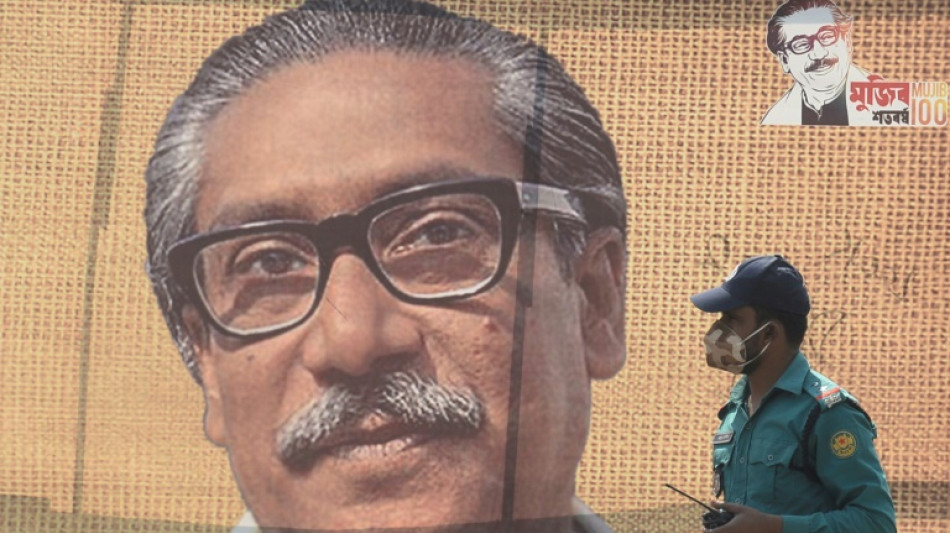
-
 A Friday night concert in Kyiv to 'warm souls'
A Friday night concert in Kyiv to 'warm souls'
-
PSG stunned by rampant Rennes, giving Lens chance to move top

-
 Japan's Totsuka wins Olympic halfpipe thriller as James misses out on gold
Japan's Totsuka wins Olympic halfpipe thriller as James misses out on gold
-
Indian writer Roy pulls out of Berlin Film Festival over Gaza row
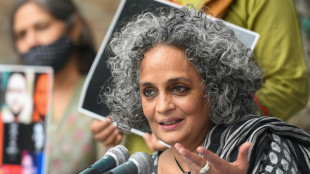
-
 Conflicts turning on civilians, warns Red Cross chief
Conflicts turning on civilians, warns Red Cross chief
-
Europe calls for US reset at security talks

-
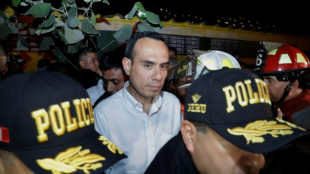 Peru leader under investigation for influence peddling
Peru leader under investigation for influence peddling
-
Rising star Mboko sets up Qatar Open final against Muchova

-
 Canada PM to mourn with grieving town, new details emerge on shooter
Canada PM to mourn with grieving town, new details emerge on shooter
-
US waives Venezuela oil sanctions as Trump says expects to visit
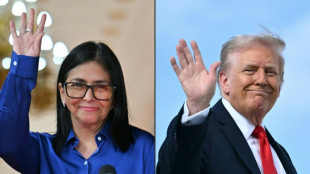
-
 NBA star Chris Paul retires at age 40 after 21 seasons
NBA star Chris Paul retires at age 40 after 21 seasons
-
WTO chief urges China to shift on trade surplus
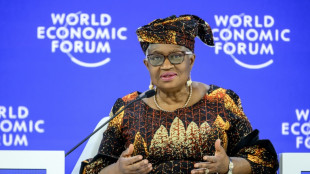
-
 Vonn hoping to return to USA after fourth surgery on broken leg
Vonn hoping to return to USA after fourth surgery on broken leg
-
Trump sending second aircraft carrier to pile pressure on Iran
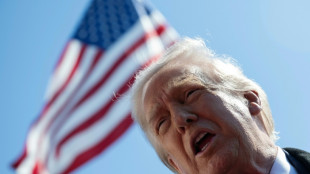
-
 Heraskevych loses Olympics disqualification appeal, Malinin eyes second gold
Heraskevych loses Olympics disqualification appeal, Malinin eyes second gold
-
Mercedes have 'taken a step back': Russell

-
 Madagascar cyclone death toll rises to 40, water, power still out
Madagascar cyclone death toll rises to 40, water, power still out
-
Earl says England inspired by last year's Calcutta Cup

-
 USA romp past Dutch in T20 World Cup to keep Super Eight hopes alive
USA romp past Dutch in T20 World Cup to keep Super Eight hopes alive
-
De Minaur scraps past local legend van de Zandschulp
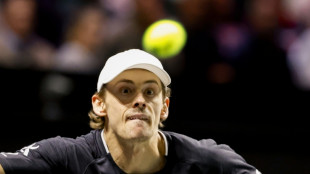
-
 Ukrainian Heraskevych loses appeal against Olympics disqualification
Ukrainian Heraskevych loses appeal against Olympics disqualification
-
Ghana rallies round traditional tunic after foreign mockery

-
 Forest set to hire former Wolves boss Pereira: reports
Forest set to hire former Wolves boss Pereira: reports
-
England rugby captain Itoje slams Ratcliffe's 'ridiculous' immigration comments

-
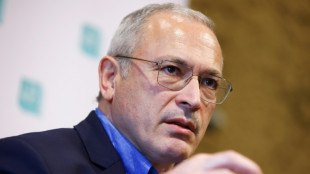 Europe should speak to Russia with 'one voice', Putin foe says
Europe should speak to Russia with 'one voice', Putin foe says
-
US Congress impasse over immigration set to trigger partial shutdown
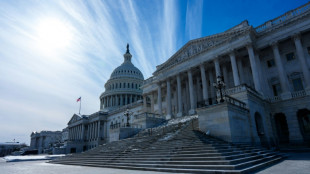
-
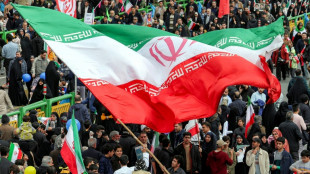 US to deploy new aircraft carrier to Middle East as Trump warns Iran
US to deploy new aircraft carrier to Middle East as Trump warns Iran
-
Ubisoft targets new decade of 'Rainbow 6' with China expansion
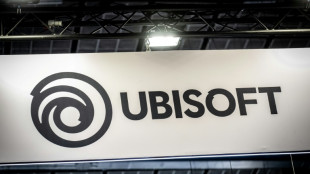
-
 Stocks trend lower as AI disruption worries move to fore
Stocks trend lower as AI disruption worries move to fore
-
Spurs set to hire Tudor as interim boss until end of season: reports
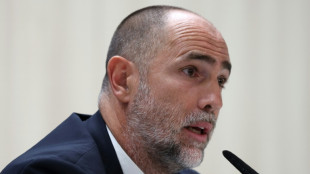
-
 International crew en route to space station
International crew en route to space station
-
Man City's Rodri charged over ref rant

-
 Italian biathlete Passler cleared to compete at Olympics despite positive test
Italian biathlete Passler cleared to compete at Olympics despite positive test
-
Macron slams 'antisemitic hydra' as he honours 2006 Jewish murder victim

-
 Tuipulotu warns England to beware 'desperate' Scotland in Six Nations
Tuipulotu warns England to beware 'desperate' Scotland in Six Nations
-
Cash-starved French hospitals ask public to pitch in

-
 US consumer inflation eases more than expected to lowest since May
US consumer inflation eases more than expected to lowest since May
-
Germany's Merz urges US to repair ties with Europe
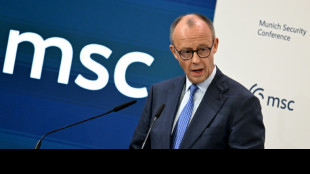
-
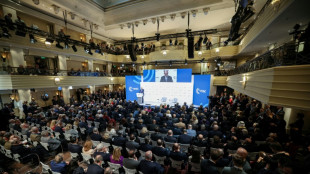 Europe seeks new 'partnership' with US at security gathering
Europe seeks new 'partnership' with US at security gathering
-
Fresh water leak adds to Louvre museum woes
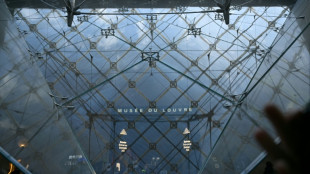
-
 Floods wreak havoc in Morocco farmlands after severe drought
Floods wreak havoc in Morocco farmlands after severe drought
-
Russia, Ukraine to hold talks in Geneva on February 17-18

-
 Ukraine's Heraskevych hopes 'truth will prevail' in Olympics appeal
Ukraine's Heraskevych hopes 'truth will prevail' in Olympics appeal
-
Dumplings and work stress as Chinese rush home for Lunar New Year
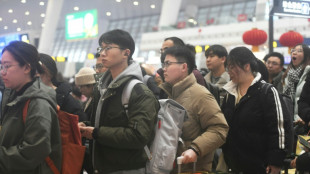
-
 Macron denounces 'antisemitic hydra' as he honours 2006 Jewish murder victim
Macron denounces 'antisemitic hydra' as he honours 2006 Jewish murder victim
-
India-Pakistan: Hottest ticket in cricket sparks T20 World Cup fever
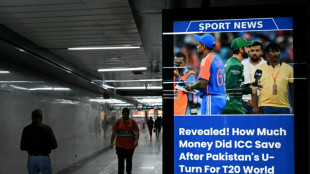
-
 Cross-country king Klaebo equals Winter Olympics record with eighth gold
Cross-country king Klaebo equals Winter Olympics record with eighth gold
-
Ukraine's Heraskevych appeals to CAS over Olympic ban as Malinin eyes second gold

-
 Stocks mostly drop after Wall Street slide
Stocks mostly drop after Wall Street slide
-
Sophie Adenot, the second French woman to fly to space


Ode to the father: Bangladesh's political personality cult
Bangladeshi Prime Minister Sheikh Hasina still grieves the assassination of her father -- the country's founder -- nearly 50 years ago, and her government ensures the nation grieves with her.
Once sidelined from official history, Sheikh Mujibur Rahman is now the subject of a personality cult that designates him "Father of the Nation".
Hasina has foregrounded his legacy in what critics say is an effort to entrench her ruling Awami League, which dominates national politics and is set to sweep elections Sunday following an opposition boycott.
Her government has also enacted stiff punishments for any comments, written work or social media posts that could be construed as defaming his legacy.
"She has basically introduced a secular blasphemy law in the country for her father -- the kind we see in one-party states," a senior human rights activist in Bangladesh told AFP, asking for anonymity out of fear of retribution.
Since his daughter returned to office in 2009, Mujib's visage has appeared on every banknote and in hundreds of public murals across the South Asian nation of 170 million people.
Dozens of roads and institutes of higher learning have been named after him, and Hasina's government changed the constitution to require that his portrait be hung in every school, government office and diplomatic mission.
At the centre of this project of national commemoration is Hasina's childhood home in an upmarket neighbourhood of the capital Dhaka.
Now a museum, the residence is where her father, uncle and three brothers were gunned down by disgruntled army officers at the break of dawn in August 1975.
The walls are still pockmarked with bullet holes from that day, in rooms that otherwise faithfully preserve the books, smoking pipe and other artefacts of Mujib's life, with hundreds visiting daily to pay their respects.
"I could see how he and his family were brutally murdered," student Abdur Rahim ibne Iftekhar, 21, told AFP inside. "It was heart-wrenching."
- 'Betrayal of the hopes' -
Mujib was the key political figure during a period of growing agitation for independence from Pakistan, which had governed the territory now known as Bangladesh since the 1947 end of British colonial rule.
He was imprisoned by Pakistan's military regime at the outset of a horrific 1971 war that liberated his country and killed as many as three million people -- most of them civilians in present-day Bangladesh.
Mujib was the first post-independence leader but the tumultuous years that followed saw Bangladesh struggle through the economic devastation imposed by the war, including a famine in which hundreds of thousands of people died.
Towards the end of his life he abolished multi-party democracy and imposed media restrictions that shuttered all but four state-controlled newspapers.
Hasina refers to his assassination in a 1975 military coup in almost every speech she gives, her voice often choking with emotion.
It was "the betrayal of the hopes and aspirations of the people of the soil", she once wrote.
- 'Cannot be questioned' -
In 2018, Hasina's government enacted a cybersecurity law that has been used to arrest numerous people accused of defaming Mujib's legacy.
A city mayor from her party was arrested in 2021 for refusing to approve a mural of Mujib, because the traditions of some among Bangladesh's majority Muslim faith consider depictions of people in murals or statues to be idolatry.
Opposition parties say that the veneration of Mujib and the laws protecting him from criticism reflect a broader erosion of civil liberties under Hasina and the consolidation of her party's grip over democratic institutions.
"It is a clear tilt towards an authoritarian one-party state," a senior opposition official, who also asked for anonymity, told AFP.
Some analysts believe Hasina's motivations to be more personal.
Mujib's contributions to Bangladesh's independence struggle were minimised by the military government that replaced him.
Some of his killers received coveted diplomatic postings and all were controversially indemnified from prosecution -- a law revoked by Hasina's government.
All five were hanged after she returned to office.
"Hasina wants to make sure that this and future generations do not encounter such a situation," Ali Riaz, a professor at Illinois State University, told AFP.
"The objective is to ensure that Sheikh Mujib's standing and contributions in history cannot be questioned."
M.A.Colin--AMWN

